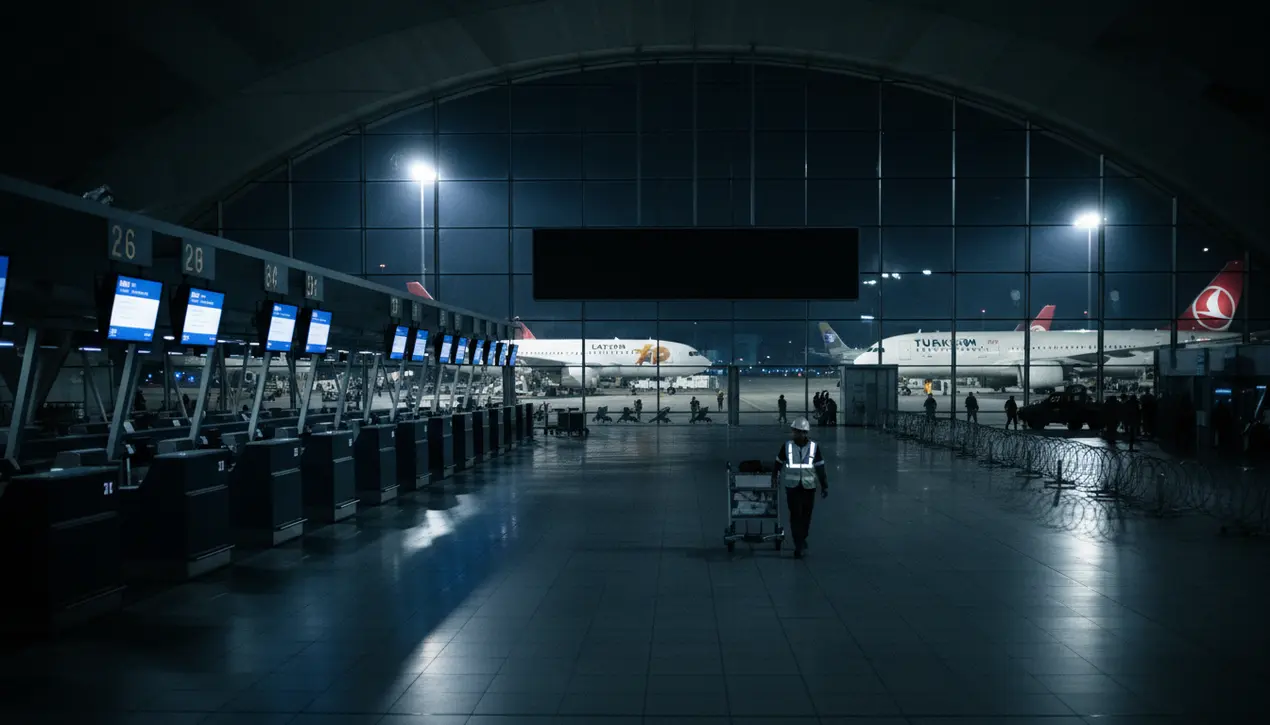
Politicsconflict & defenseMilitary Operations
Airlines cancel flights to Venezuela after FAA military alert
OL
Oliver Scott
17 hours ago7 min read
The abrupt cancellation of flights to Venezuela by multiple international carriers over the weekend marks a significant escalation in the geopolitical tensions enveloping the South American nation, a direct consequence of a stark Federal Aviation Administration NOTAM warning of a 'worsening security situation' and 'heightened military activity' in its airspace. This development, triggered by the Trump administration's rapid military buildup, including the deployment of the colossal USS Gerald R.Ford aircraft carrier to the Caribbean, represents a classic case of political risk materializing with immediate and tangible economic impact. The strategic calculus here is clear and perilous; the stated U.S. objective to topple the Maduro regime, underscored by a $50 million bounty on the leader for alleged drug trafficking and a weeks-long campaign of strikes against purported drug trafficking vessels, has now crossed a threshold from targeted military action into the realm of broader commercial disruption.For risk analysts, the flight suspensions by LATAM, Caribbean, Iberia, Turkish Airlines, Avianca, and TAP—as confirmed by Marisela de Loaiza of the Venezuelan Airlines Association—are not merely logistical headaches but critical indicators of a deteriorating operational environment, effectively imposing an informal air blockade that strangles a vital artery for the country's remaining international connectivity. The confirmation from Turkish Airlines that its suspension will last through Friday provides a short-term timeline, yet the precedent suggests such closures can easily be extended, creating a cascading humanitarian and economic crisis.The scenario is further complicated by the vocal intervention of Colombian President Gustavo Petro, himself under U. S.sanctions, who decried the situation on X, framing the flight cancellations as a 'crime against humanity' and a violation of national sovereignty. His statements highlight the deep regional fissures this crisis is exacerbating, pitting U.S. allies against those sympathetic to Maduro's socialist government and raising the specter of a protracted regional confrontation.The Pentagon's deferral to the White House and FAA for comment, coupled with their silence, signals a tightly controlled, top-down communication strategy typical of high-stakes military planning, leaving airlines and travelers in an information vacuum. Historically, such aviation advisories in conflict zones—from Ukraine to the Middle East—have presaged prolonged periods of isolation, devastating local economies and trapping civilians.The potential consequences are multifaceted: a further collapse of Venezuela's already crippled economy, increased isolation of its population, a surge in refugee pressures on neighboring borders, and a dangerous game of brinksmanship that increases the probability of a miscalculation or direct military engagement. This is not merely a travel advisory; it is a flashing red light on the global risk dashboard, signaling that the volatile situation in Venezuela has entered a new and more dangerous phase where economic tools and military posturing are becoming inextricably linked, with ordinary citizens and international commerce caught squarely in the crossfire.
#Venezuela
#US military
#flight cancellations
#airlines
#Maduro
#featured
Stay Informed. Act Smarter.
Get weekly highlights, major headlines, and expert insights — then put your knowledge to work in our live prediction markets.
Comments
Loading comments...
© 2025 Outpoll Service LTD. All rights reserved.